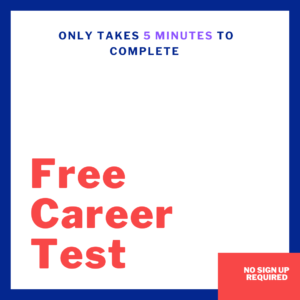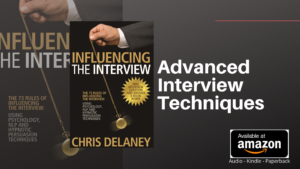Be Prepared for your Job Interview
This Months Guest post comes from Simply Marketing Jobs
The golden rule of being interviewed is BE PREPARED! It sounds obvious but so many well-qualified job seekers make the mistake of arriving for interviews without planning properly in advance, hoping their experience and personality will carry them through. So what can you do before the big day to ensure you impress the interview panel and land that job?
How to Prepare for a Job Interview.
Carry out extensive research on the organisation
It’s vital to do all the research on the company that you can.
Spend time going through the company website and if the post you’re applying for is senior, get a copy of their latest published accounts (normally these are available to download from a company’s corporate website).
Google is of course a fantastic tool for finding out some interesting facts about the organisation you’re hoping to work for.
“What do you know about our company?” is one of the most commonly asked interview questions, so having to scrape around for something to say instantly looks bad. If the information is on their website, there is no excuse for not knowing about it, and having pre-prepared opinions about recent business activities and marketing campaigns will demonstrate your interest. It’s best to keep any negative opinions to yourself of course.
Areas of the business you must research:
· What does the company do?
· What’s the company culture?
· Which products and services does it sell?
· Growth plans for the future
· Main competitors
· Financial performance
· Recent published trade news
· Who will be interviewing you and what is their role?
Presentation
First impressions really do count so don’t risk everything by looking scruffy or inappropriately dressed.
Always overdress rather than risk being under-dressed. Studies show that often the average length of time between a candidate entering the interview room and a decision being made is less than four minutes.
After this time, recruiters are often looking for evidence to support the decision that – perhaps subconsciously – they have already made.
If you are at all unsure about the dress code ask the recruiter well in advance. Remember to think about your body language too – smiling often, sitting upright rather than slouching, and making plenty of eye contact will all show you in a good light.
Punctuality
As a professional, you don’t need to be told to arrive on time, but if you have interviewed extensively yourself you’ll know just how many job seekers still arrive late.
Make sure you find out where you are going and plan how you are going to get there. If you are unsure of the exact location of the interview print out a map.
Allow plenty of extra time in case of travel delays, particularly if you are heading into central London, or any other major city for the job interview. If you arrive very early find a nearby café and collect your thoughts and make any final preparations e.g. ensuring you have your mobile phone turned off before you go into the interview.
Prepare for the likely questions
Many people fall down here, simply because they haven’t spent sufficient time thinking through answers to fairly straightforward questions. Here are a few classics that will remind you of what to expect at an interview and what kinds of answers to give.
Why do you want to work for us?
The interviewers want to know you are genuinely interested in the company and the opportunities this job provides.
So you must demonstrate that you understand what makes this company different from its competitors, and what you think will be the interesting/challenging/rewarding things about working there.
Think carefully about what really appeals to you about this job and company and how you can stand out from the other people who are applying for this job, and come up with at least three points – e.g. the brands are powerful and widely admired in the marketplace; it’s an award-winning company; you’ve read fantastic client testimonials on the company website.
How would you describe yourself?
Whatever you say it’s important to be honest and genuine.
You want the interviewer to feel confident that they are seeing your true personality rather than telling them what you think they want to hear.
Remember to give plenty of evidence to back up statements or claims about yourself. Rather than telling the interviewer you are ‘target driven’, give live examples of when you have hit or exceeded targets and describe the steps you took to ensure targets were never missed.
What are your strengths?
The interviewer wants to know what your key strengths are in relation to this particular job. Make sure you choose examples that are relevant to this role but also examples that set you apart from other applicants.
Try to have four or five strengths available in case the interviewer asks for some further examples. Remember that for most jobs you will want to include an example of working well as part of a team, and fitting in well with others.
What is your greatest weakness?
Of course, be careful not to say anything too negative about yourself – such as you struggle to concentrate, or are badly organised.
Prepare an example of a weakness that you have overcome – for instance, your time management skills have improved in recent years because you now use a certain system. “I used to accept too much work in an effort to please everybody, but soon discovered that I was diluting my focus and not performing as I should…. Today I try not to be superwoman, but explain carefully to colleagues why I must prioritise my workload.”
Where do you see yourself three years from now?
Don’t overstate your ambitions here. The company really just wants reassurance that you’ll stick with the company and stay motivated over time. So it’s best to say something like: “I envisage myself enjoying my work in a progressive company like this one, and being valued as an asset to the organisation. I hope I would have performed well enough to have earned a promotion, having proved I am worthy of such a position.”
Have questions prepared too
‘Do you have any questions?’ is actually a very important part of the interview process, so don’t say ‘no’, whatever you do.
Asking insightful, pre-prepared questions when given the opportunity is as important as any of the answers you will have already given during the interview, this is well worth remembering.
Not having relevant questions or squirming uncomfortably as you try to think up an intelligent question on the spot will make you look badly prepared and disorganised.
Have 10 questions prepared before you go into the sales job interview. As the interview progresses several of these will no doubt be answered as part of the general interview dialogue. However, when it is your turn to ask questions, pick the 3 to 5 questions that seem most relevant at the time.
Good questions to ask might include:
• What is the company’s approach to training and development?
• How would you describe the company culture?
• What is the biggest challenge facing your company currently?
• How will my success in this role be measured over the next 12 months?
• What kind of person does really well in this division?
Being fully prepared in these ways should set you off on the right track. The more prepared you are, the more confident you will appear on the day, which should also help reduce nervousness. So put in the time, and the rewards really are within reach!
This article was provided by Simply Marketing Jobs, a leading marketing recruitment board.







